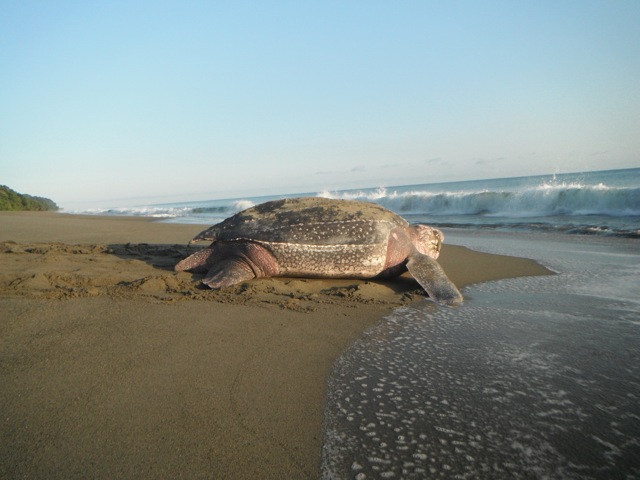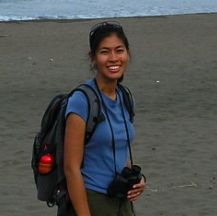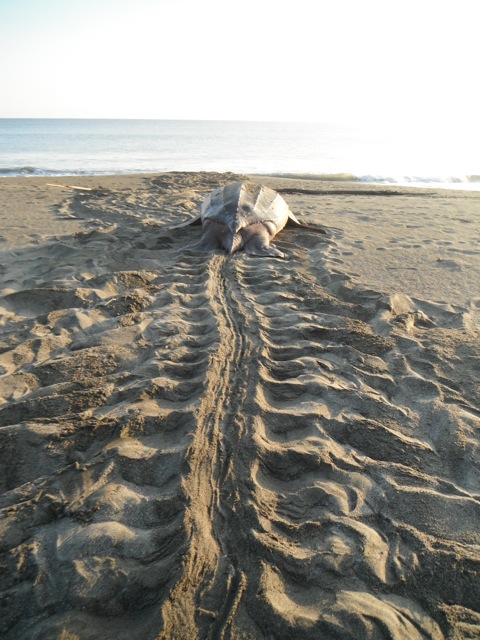

by Deasy Lontoh, Vetebrate Ecology Lab
Kamdo! That’s “Good day” in Abun, the language in this region of Indonesia.
The number of turtles coming up to nest is starting to go down, a sign that the nesting season is coming to an end. I met one big mama a couple of weeks ago that went back to sea after daybreak.
Staying healthy in the field is a real challenge. One of our crew members had to go back to the city to receive malaria care ten days ago, and he’s still not fully recovered yet. Another had a fever last night, and we’re still waiting to see if the fever is due to malaria or infection. Almost everyone I work with has had malaria. The symptoms include fever and body aches. They have to go back into the city to receive proper care, which is a half-day trip by a ship.
Infection usually starts with sandfly bites. Most people are allergic to them, including me, so every night I end up with about 20-30 very itchy welts. No kidding! I haven’t found a bug repellent that works. If I scratch them too hard, I’d end up nursing the scrapes for a few days. Cuts and scrapes heal slowly in this humid region. If my immune system is down, I may end up fighting infection.
Hard physical labor, lack of sleep, and limited diet are the reality here. We walk about 10 km a night on sand. Sleep during the day is difficult and often divided into two to three-hour chunks. We subsist on a mainly carb-based diet and canned meats because we have no means of refrigerating veggies and fruits. We do our best to make weekly trips into nearby villages to get veggies, but the amount doesn’t come close to the recommended daily servings. Besides collecting data, staying well definitely gets my full attention!


